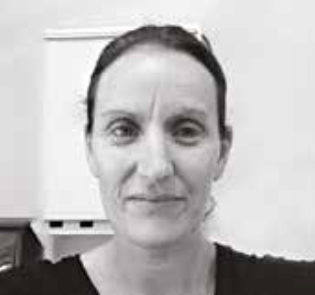 Dr Anita Watts is a Wiradjuri woman who grew up in Western Sydney. Her father’s family are from Darlington Point in the Riverina area of NSW. Her maternal grandmother was born at Warangesda mission near Darlington Point, and her mother is a New Zealander. Anita lives in Newcastle with her partner David (a rehabilitation physician) and children Noah, Jemima and Archie.
Dr Anita Watts is a Wiradjuri woman who grew up in Western Sydney. Her father’s family are from Darlington Point in the Riverina area of NSW. Her maternal grandmother was born at Warangesda mission near Darlington Point, and her mother is a New Zealander. Anita lives in Newcastle with her partner David (a rehabilitation physician) and children Noah, Jemima and Archie.
Anita originally moved to Newcastle to study medicine as a 17-year-old. Now, she cannot think of any place she would rather be. Anita’s pathway to becoming a GP began with many years in the hospital system, gaining experience in various specialities. She later went on to do most of her general practice training in Darwin, both in mainstream services and at the Danila Dilba Aboriginal Medical Service.
Anita currently works part time in general practice, and part time as a senior lecturer in Aboriginal and Torres Strait Islander health at the University of Newcastle. Her university role provides academic support to Aboriginal and Torres Strait Islander medical students, as well as the development and delivery of the Aboriginal health curriculum in the medical program.
Anita’s passion is to prepare medical graduates to work with the challenges of Aboriginal and Torres Strait Islander health. She chose to work in this eld of medical education to help equip medical graduates with the skills to influence better health outcomes for Aboriginal and Torres Strait Islander peoples. A third of all Aboriginal and Torres Strait Islander doctors in Australia graduated from the University of Newcastle. Anita is proud to be a member of this group and support future generations of Aboriginal and Torres Strait Islander doctors.
What Anita enjoys most about being a GP is the continuity of care. She feels privileged to be part of her patients’ lives over a long period. Due to the flexibility afforded to GPs, Anita believes being a GP and a very involved parent works well together. She works in a mainstream practice, but she has a high proportion of Aboriginal and Torres Strait Islander patients and her special interest area is women and children’s health. Anita’s current goal is to see the graduation of all 70 Aboriginal and Torres Strait Islander medical students enrolled at the University of Newcastle, and to see another 70 enrolled after that. And, she hopes to see the day when we reach population parity between Aboriginal and Torres Strait Islander doctors and non-Indigenous doctors.
Anita believes we are ‘closing the gap’ slowly, and she looks forward to when we can expect the same health outcomes for both her Aboriginal and Torres Strait Islander patients and non-Indigenous patients. However, she prefers to focus on the gains made as well as on what we are still working towards. She advocates for every Aboriginal and Torres Strait Islander child to have the same lifelong opportunities and expectations for good health as non-Indigenous children. Anita thinks we can do better on an individual level as GPs by making sure we are identifying all our Aboriginal and Torres Strait Islander patients, thinking broadly about what might be helpful to each individual patient, being aware of what services are available to them, and advocating on their behalf that they deserve the same rights to health as non-Indigenous patients.
When not working or being a busy mother, Anita likes to spend time with family and friends. She enjoys reading, riding her bicycle and loves to travel when the opportunity arises.
First published in: The Royal Australian College of General Practitioners. Closing the gap with the RACGP’s Aboriginal and Torres Strait Islander GPs. East Melbourne, Vic: RACGP, 2016